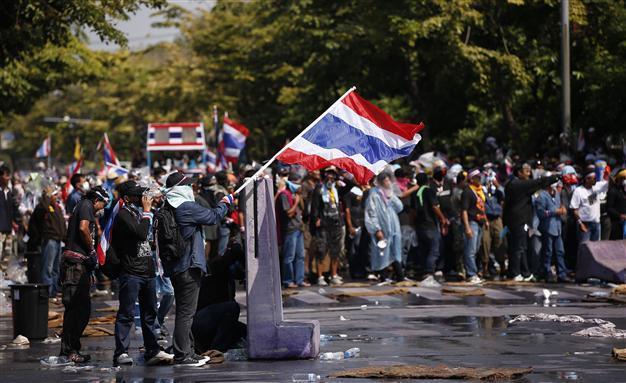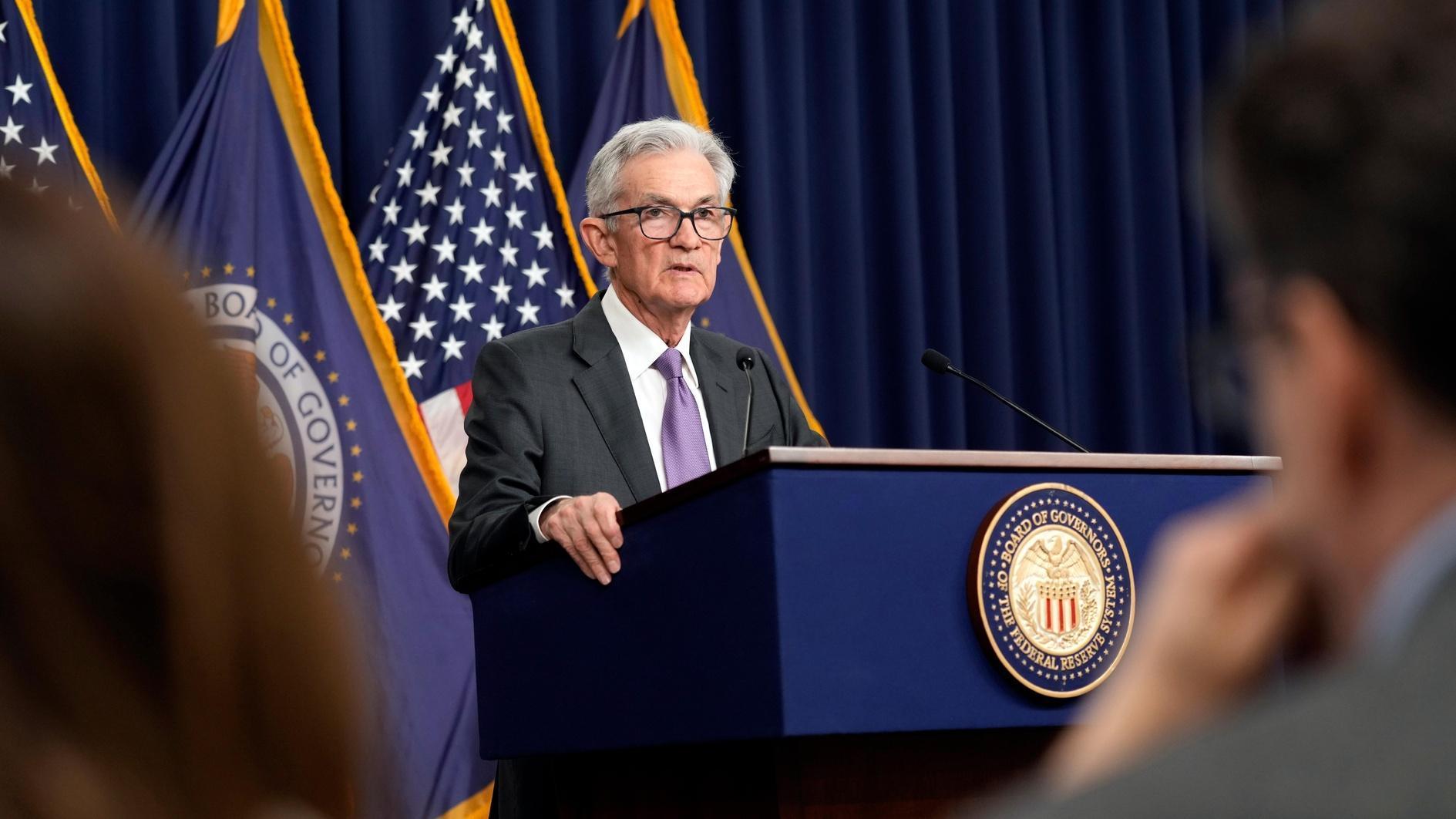Thai PM rejects protest calls as clashes rock Bangkok
BANGKOK - Agence France-Presse

Anti-government protesters wave Thai national flags as they confront police during a protest in Bangkok, in Bangkok, Thailand, Monday, Dec 2, 2013. AP Photo
Thai Prime Minister Yingluck Shinawatra Monday rejected the demands of protesters who have urged her to quit, as police issued an arrest warrant for "insurrection" against the protest leader amid renewed clashes.Police used rubber bullets, tear gas and water cannon against rock-throwing demonstrators as they strengthened their defence of key government buildings, after weekend unrest in the capital left several dead and more than a hundred wounded. The protests, aimed at unseating the elected government and replacing it with a "people's council", are the latest outbreak of civil strife to rock the kingdom since royalist generals ousted Thaksin Shinawatra, Yingluck's brother, seven years ago.
Bloodshed in the capital in recent days is the worst political violence in Thailand since a deadly 2010 military crackdown on pro-Thaksin "Red Shirts".
It has also raised fears of damage to the economy and particularly the lucrative tourism sector as the peak season gets underway.
In her first televised address since the weeks-long protests descended into violence late Saturday, Yingluck said she could not yield to the demands of the rally leaders because they would breach the country's laws.
"Anything I can do to make people happy, I am willing to do... but as prime minister, what I can do must be under the constitution," she said, adding that she did not "cling to power".
The embattled premier said she would have considered resigning or calling an election if protesters had not already ruled out these moves as insufficient. She insisted the government was open to "every option" to restore peace.
Later Monday an arrest warrant for protest leader Suthep Thaugsuban was issued "for the charge of insurrection which shall be punished with death or life imprisonment", said Chayut Thanataweerat, the deputy metropolitan police commander, in a televised statement.
Thailand rarely uses the death penalty.
Suthep, who also faces another warrant over the occupation of government ministries, on Sunday issued an ultimatum for Yingluck's government to be ousted in two days.
He demanded power be handed "to the people" at a secret meeting with the prime minister in the presence of the army, navy and air force commanders.
Suthep, a deputy prime minister when the current opposition party was in power, has rejected elections and said he wants to root out the "Thaksin regime" -- a reference to the former premier who is widely seen as the power behind Yingluck's government.
Thaksin, a billionaire tycoon-turned-politician, is hated by the elites, Bangkok's middle class and southerners, who have massed in the capital in recent days and accuse the ousted leader of corruption and threatening the monarchy.
But he is adored by many outside Bangkok, particularly in his stronghold in the nation's north and northeast. He or his allies have won every election for a decade. Yingluck, whose party stormed to power on a wave of support for Thaksin at elections in 2011, said Monday any solution to the crisis would have to be "acceptable to the majority".
She has kept a low profile during the unrest, a move some analysts see as an attempt to avoid further inflaming the demonstrators.
But officials confirmed the increased use of force on Monday as protests intensified.
"There are rubber bullets used today," Paradorn Pattanatabut, secretary general of the National Security Council, told AFP.
Clashes continued into the evening as police fought to defend barriers at the prime minister's offices and city police headquarters against crowds who have besieged several key ministries.
Television footage showed a bulldozer being driven from one of the protesters' bases close to Government House.
A doctor at a hospital near Government House said it was treating two men -- one in a critical condition -- with wounds from live rounds. It was unclear who shot them.
While the numbers have fallen since an estimated 180,000 people joined an opposition rally on November 24, they have besieged high-profile targets -- including ministries -- in what some observers believe is an attempt to provoke a military coup.
The protests were triggered by an amnesty bill, since abandoned by the ruling party, which opponents feared would have allowed Thaksin to return to the country.
Thailand has seen 18 actual or attempted coups since 1932, most recently with Thaksin's overthrow in 2006. But the military has appeared reluctant to intervene in the current standoff.
The nation is due to celebrate the birthday of King Bhumibol Adulyadej on Thursday in a public holiday that is normally embraced in a spirit of calm and reverence for the ageing monarch.
















